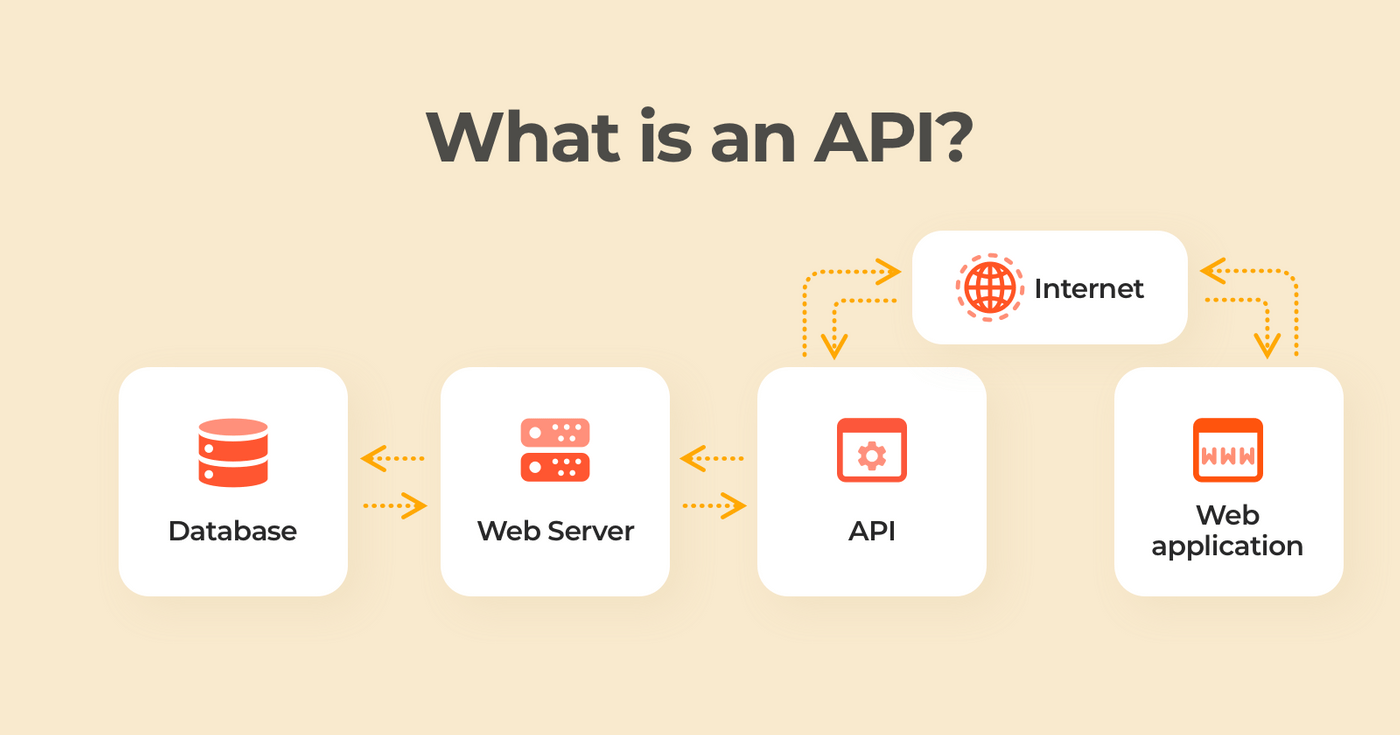What does API mean, what are the benefits of APIs and why are APIs important to app development?
What does the term API mean in app development?
API stands for “Application Programming Interface”. In app development, it refers to the various means that an app has of communicating with other apps and devices. An API can allow your app to access data stored in another app, or to send commands to another app. It can also provide a way for your app to interface with hardware components, such as microphones and cameras. By using an API, you can greatly expand the functionality of your app.
One popular example of an API is the Facebook API. This allows developers to create apps that can interact with Facebook in various ways. For instance, an app might use the Facebook API to post updates to a user’s timeline, or to access their list of friends.
Another popular example is the Google Maps API. This allows developers to create apps that can display maps and directions, or search for specific locations.
The Google Maps API is free to use, which has helped make it very popular among developers.
If you’re thinking of creating an app, it’s important to consider what APIs are available that could be useful for your project. There are many different APIs available, so there’s a good chance that you can find one that meets your needs. However, it’s also important to be aware of the potential drawbacks of using an API. For example, if the API is not well-maintained, it could break unexpectedly and cause your app to malfunction. It’s also worth noting that using an API can add complexity to your code, so you may need to spend more time debugging and troubleshooting your app.
Overall, APIs can be a great way to extend the functionality of your app. However, it’s important to choose the right API for your needs, and to be aware of the potential risks involved.

What are the benefits of API for mobile apps?
API stands for “Application Programming Interface” and refers to the various ways that software applications can communicate with each other. An API allows two pieces of software to exchange data and instructions between each other, making it possible for one piece of software to perform a task that another piece of software is designed to do.
In the context of mobile app development, an API can allow a third-party app to access certain features or data from another app. For example, if you have a social media app that you want to share photos from your camera roll with, you would need to use the API from the social media app in order to do so.
There are many benefits of using an API for mobile app development. One benefit is that it can make the development process much easier. For example, if you want to develop a social media app that integrates with Facebook, you would need to use the Facebook API.
Another benefit of using an API is that it can help you save time and money. Developing an app from scratch can be a very time-consuming and expensive process. However, if you use an existing API, you can save a lot of time and money because you will not have to develop all of the functionality yourself.
In addition, using an API can also help you improve the quality of your app. When you use an existing API, you are able to leverage the work that has already been done by someone else. This means that you can focus on developing the parts of your app that are most important to you and your users.
Finally, using an API can also help you reach a wider audience. If you develop an app that only works with one specific platform, then you will be limiting your potential customer base. However, if you use an API that is available on multiple platforms, you will be able to reach a much larger audience.
Overall, there are many benefits of using an API for mobile app development. If you are considering developing a mobile app, you should definitely consider using an API.
What are important APIs to use for Android developers?
There are a number of important APIs that Android developers should be aware of. Some of these include the following:
- OpenGL ES: This API is used for graphics rendering and provides a powerful set of tools for creating sophisticated visuals.
- Location Services: This API can be used to track the user’s location and determine their proximity to various points of interest.
- Networking: The networking API allows developers to access network resources and perform network operations.
These are just a few of the most important APIs that Android developers should be familiar with. By understanding how to use these APIs, you’ll be able to create apps that are both functional and visually appealing.
Contact us for more info.
